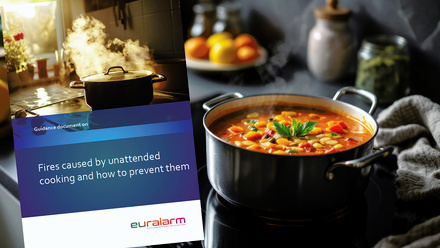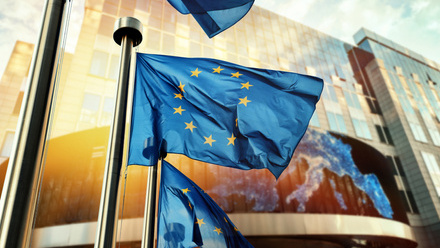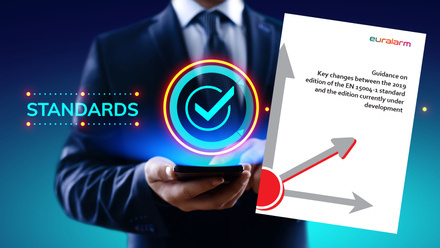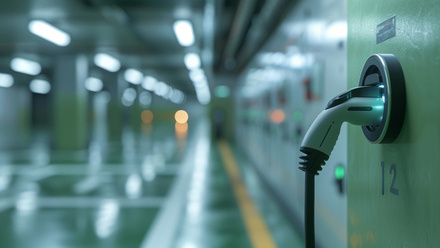Experts present current and future opportunities and challenges for the fire safety and security industry
This year, the progress made on the strategic areas and identified in our document ‘Priorities and Challenges 2019-2024’ was reviewed followed by two workshops that focused on key areas of interest for members and guests. The first area was ‘International Standards and Trade’; the second area was focused around ‘Is your business ready for the future? ’
International Standards and Trade
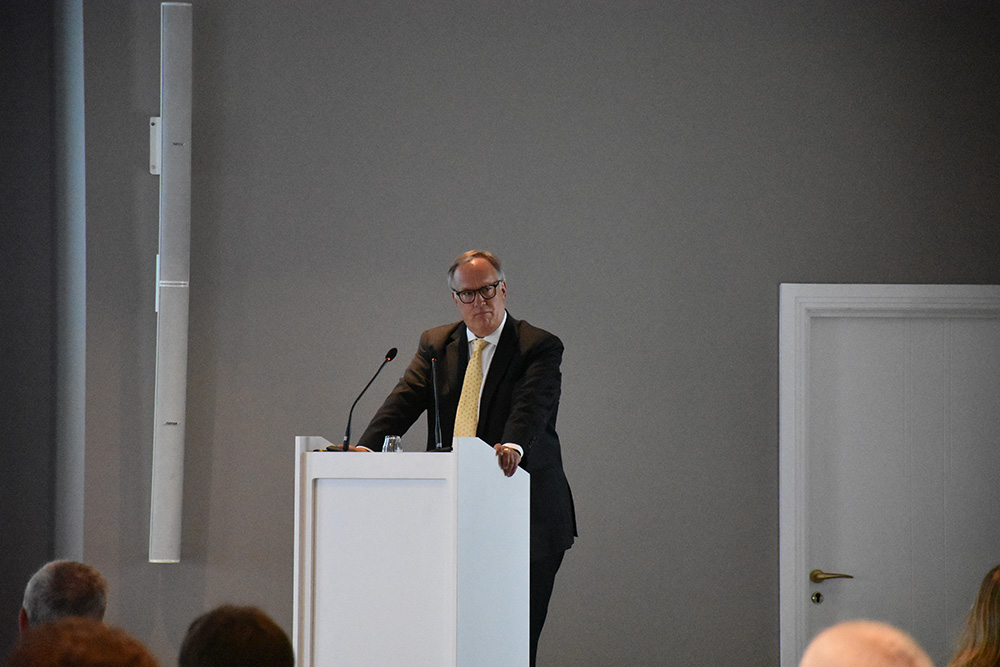
As mentioned in the review of the Priorities and Challenges 2019-2024, standards for products and services are at the heart of our industry's success. Euralarm's members need a fast and flexible standards-setting system because it is the best way to serve the interests of customers, the industry and the public. An agile system helps us to respond rapidly to customers' demands and put European companies on the best footing to serve global markets. That is the crossroad where international standards and trade come together.
Competitive edge
The first speaker on this topic was Mrs. Silvia Vacarro. Mrs Vacarro, Policy Officer Standardisation at the Unit Standards Policy of the European Commission DG GROW. In her presentation she highlighted that the European standardisation has been a cornerstone of the single market and a success story. Standards nowadays have left the purely technical domain to become increasingly strategic and with a growing geo-political dimension.
Thus, European standardisation operates within an increasingly competitive global context. Many third countries are taking an assertive stance to standardisation, providing their industries with a competitive edge in terms of market access and technology rollout. Europe’s competitiveness, technological sovereignty, ability to reduce dependencies and protection of EU values, including our social and environmental ambitions, will depend on how successful European actors are in standardisation at international level.
This not only involves strong standardisation skills across industry and academia, but also requires European standardisation to become more agile, flexible, and focused to anticipate the standardisation needs. At the same time, European standardisation must respond to an increasingly rapid innovation pace and needs to deliver standards fast, while preserving high-quality outputs. Other, private and non-European industry-led consortia are leaner and faster in developing standards. In particular, in new and emerging technologies, the European standardisation system often fails to deliver in a timely manner and hence loses the important ‘first mover’ advantage through standardisation.
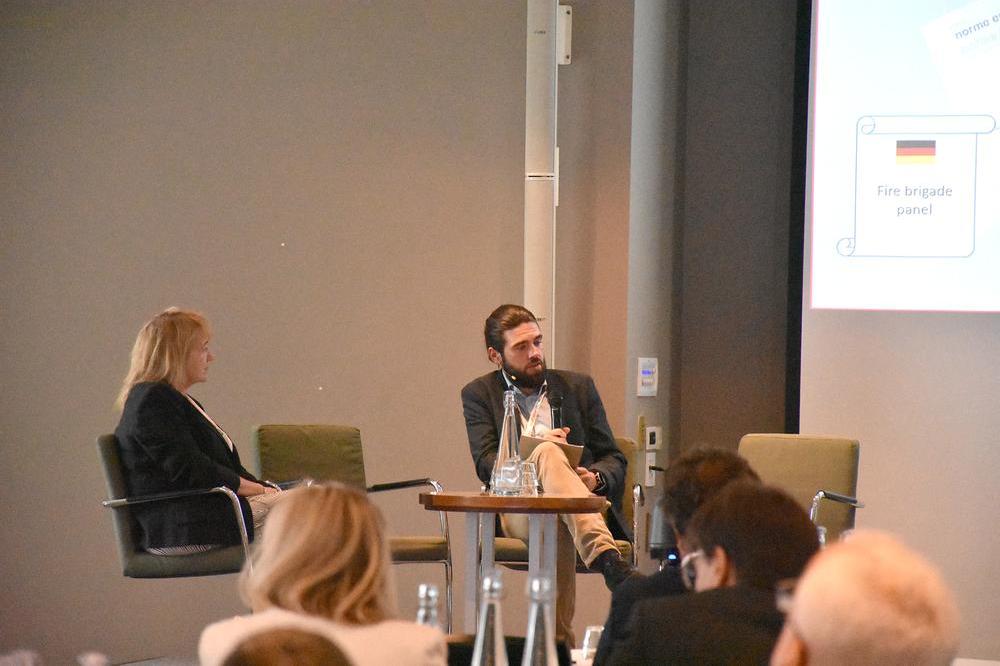
Build a safer, more sustainable, and competitive Europe
Following Silvia Vacarro’s presentation Constant Kohler was welcomed to the floor. Constant works at CEN CENELEC where his role is to advice and support Technical Bodies in the fields of Electrotechnology and ICT to ensure timely and successful delivery of standardization solutions. With a focus on harmonised standards, Constant explores the interplay between standardization, digitalization, EU legislation, market access and international trade. Constant explained the different levels where standardization happens, ranging from national via European to international levels. He presented CEN CENELEC’s Strategy 2030 to build a safer and more sustainable and competitive Europe through European and international standardization. This should be realized by creating consensus-based standards to generate trust, fulfil market requirements, enable market access and innovations for a better, safer, and more sustainable Europe. Constant also explained how standardization supports legislation and what is therefore required.
Supporting exports outside Europe
After hearing the views for the Commission and the European Standardisation Organisation it was time for some perspective from the industry. Philippe Lecuyer, President of the DEF Group, was invited to give his view on the international standards and trade. He took the EN 54 standards in Europe as an example and explained how the design is impacted by national requirements which results in different products for specific countries, this makes international trade for these products more difficult. When comparing the EN54 with the ISO 7240 Philippe showed that the ISO is a good base for the European industry and can support the export outside of Europe. He suggested to facilitate the promotion of ISO compliant products for the European industry by a unique European quality mark associated with ISO 7240 which will help to promote the products outside Europe.
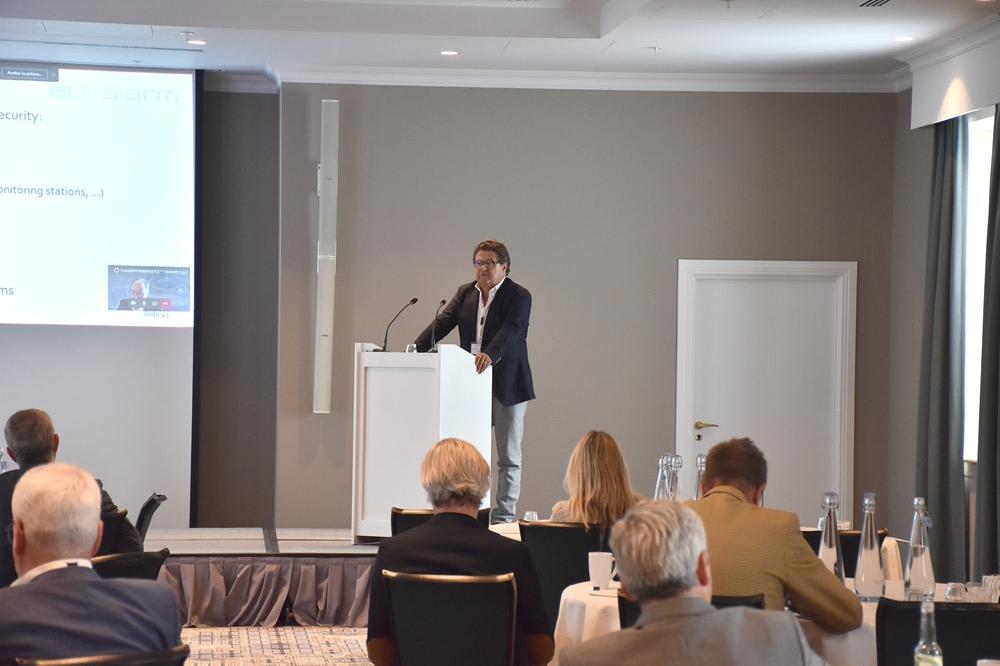
Is your business ready for the future?
The second workshop focused on the question ‘Is your business ready for the future?’ Patrick van Liempt, Secretary-General of ALIA Security opened this workshop with a presentation on the importance of national associations in transferring knowledge to its members and act as a platform for information exchange. A national association should be vigilant to the fast-changing market, technology, and business. Especially in this field Euralarm can be of great importance for the associations.
EU regulatory landscape on cybersecurity
One of the threats that Patrick mentioned was the topic of Benoît Stockbroeckx’s presentation: Cybersecurity and specifically the EU regulatory landscape on cybersecurity. Among the topics that Euralarm Technical Manager Benoît Stockbroeckx discussed were the Radio Equipment Directive and the Euralarm contributions for further improvements, the Cyber Resilience Act and Euralarm’s support for horizontal regulation and commitment for security updates defined by the manufacturer. Also, the Cyber Security Act and the Framework for CS Certification Schemes were discussed during Benoît’s presentation.
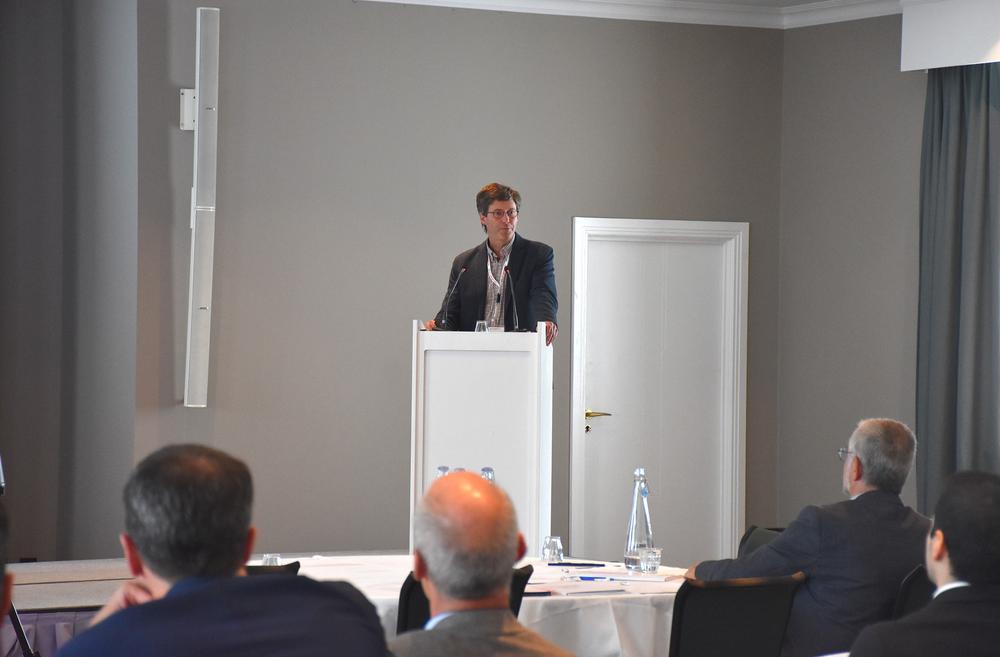
Work of TC79 WG 17 on Cybersecurity
Following the EU regulatory landscape David Wilkinson of BSIA presented the work of TC79 WG 17 on Cybersecurity. Originally set up in 2018 by CLC/TC79 as an ad-hoc group to address growing concerns of cybersecurity in connected alarm systems a cyber task group was set up to report to TC79 on important developments from cyber related regulation impacting on alarm systems. Following comprehensive research of European and global initiatives, standards, and best practices a database was developed with more the 400 standards identified relating to many facets of cybersecurity. The ad-hoc group is now focusing on and linking together the threats, defences, and relevant standards. Among the findings of the ad-hoc group are 400 standards and best practice guidance related to cyber security some of which covering vertical markets, others covering horizontal markets, some principles, and other techniques. The ad-hoc group also found that the EU led activities are accelerating and defines cyber security as a holistic process, not just a product function. The results of the ad-hoc group’s research are published in the Best Practice of which the 2nd edition was released recently. In his presentation David Wilkinson also shared the idea to simplify the best practice guidance that Euralarm and CoESS released in 2020.
Significance of Remote Services
The second part of this workshop focused on Remote Services with Miriam Braun as first speaker on the significance of Remote Services. The digital change that is all around us does not stop at technical equipment in buildings. The buildings themselves are becoming increasingly more communicative, and technology is becoming more intelligent. This requires that the fire and security systems are also become smarter and more digital. This is only possible with the use of remote services. Miriam Braun presented the different players and their interest in the use of remote services. In Europe the standard for a secure and structured use of remote service for fire and security systems is the EN 50710.
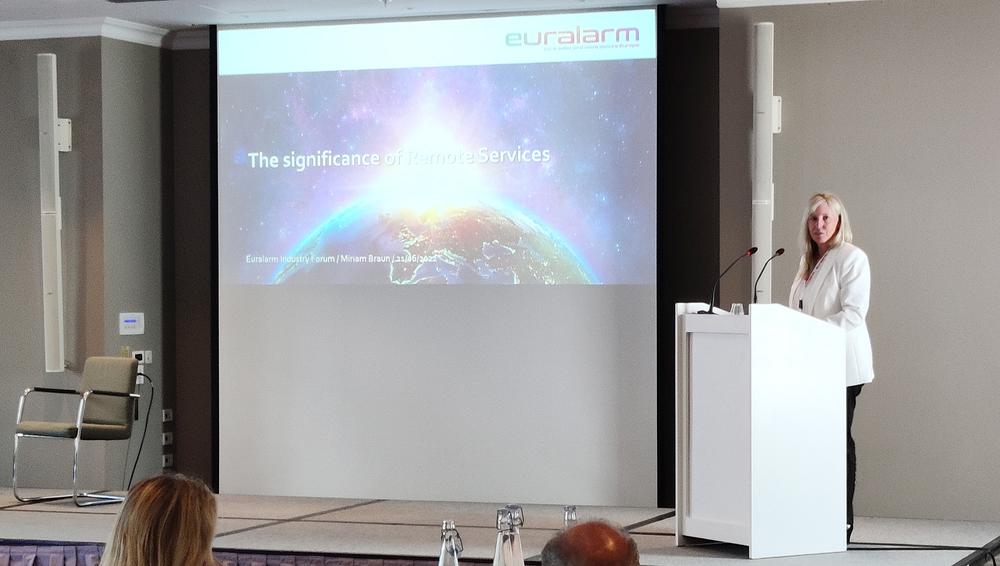
Practical compliance to Remote Services EN50710
How to translate a standard so that it can be understood in an easy way by those are going to use a standard. Oscar Feijoo Jimenez, chair of the Euralarm Security Section presented a practical compliance checklist to Remote Services for the EN50710. This checklist makes a quick assessment on compliance easier, practical, and better understandable for the user of the standard, it will help to get the wider understanding and usage of this standard. Once the checklist is approved it will enable to collect feedback from members for further development.


